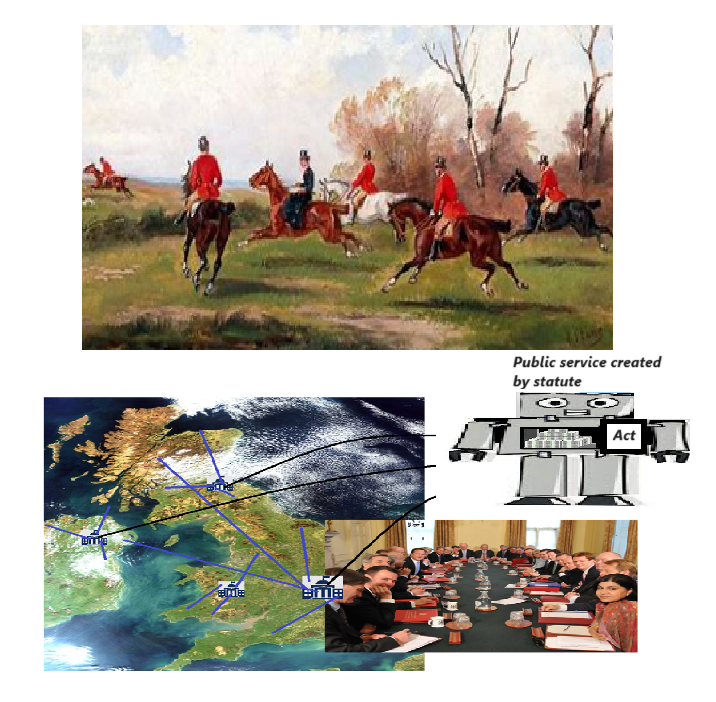Regina v Somerset Council, ex parte Fewings, [1995] 1 All ER 513 (QB) 51
Citation:Regina v Somerset Council, ex parte Fewings, [1995] 1 All ER 513 (QB) 51
Rule of thumb:Can the Local Authority ban things in their area, like fox-hunting? No, local authorities must have a statutory base for everything that they do – it is only Government Ministers who have ‘prerogative’.
Judgment:
The basic facts of this case were that stag hunting was banned. The Court held that the Local Council did not have the power to do this – there was no statutory provision on which to base this, so the law was unlawful & struck down. This case was important in fundamentally affirming the principle of the UK being a ‘free country’ – under the use of prerogative Ministers are allowed to do anything that they are not expressly prevented from doing by law, and citizens are allowed to anything that is not prohibited by law. An important qualification to this however is that quangos, public bodies created by statute, do not possess this freedom, and they are only allowed to do what they are expressly allowed to do under statute, ‘For private persons, the rule is that you may do anything you choose which the law does not prohibit. But for public bodies the rule is opposite, and so of another character altogether. It is that any action taken must be justified by positive law... The rule is necessary in order to protect people from arbitrary interference by those set in power over them'.
Ratio-decidendi:
524, Justice Laws, ‘The judge was at pains to emphasise (at pages 515d to 516b of his judgment) what these proceedings are not about. This is so important that I must repeat it. The point is often made that unelected unrepresentative judges have no business to be deciding questions of potentially far-reaching social concern which are more properly the preserve of elected representatives at national or local level. In some cases the making of such decisions may be inescapable, but in general the point is well made. In the present case it certainly is. The court has no role whatever as an arbiter between those who condemn hunting as barbaric and cruel and those who support it as a traditional country sport more humane in its treatment of deer or foxes (as the case may be) than other methods of destruction such as shooting, snaring, poisoning or trapping. This is of course a question on which most people hold views one way or the other. But our personal views are wholly irrelevant to the drier and more technical question which the court is obliged to answer. That is whether the county council acted lawfully in making the decision it did on the grounds it did. In other words, were members entitled in reaching their decision to give effect to their acceptance of the cruelty argument? III In seeking to answer that question it is (as the judge very clearly explained at pages 523j to 525g of his judgment) critical to distinguish between the legal position of the private landowner and that of a land-owning local authority. To the famous question asked by the owner of the vineyard ("Is it not lawful for me to do what I will with mine own?" St Matthew, chapter 20, verse 15) the modern answer would be clear : "Yes, subject to such regulatory and other constraints as the law imposes". But if the same question were posed by a local authority the answer would be different. It would be : "No, it is not lawful for you to do anything save what the law expressly or impliedly authorises. You enjoy no unfettered discretions. There are legal limits to every power you have". As Laws J put it (at page 524f), the rule for local authorities is that any action to be taken must be justified by positive law’. Lord Bingham
‘For private persons, the rule is that you may do anything you choose which the law does not prohibit. But for public bodies the rule is opposite, and so of another character altogether. It is that any action taken must be justified by positive law... The rule is necessary in order to protect people from arbitrary interference by those set in power over them’. 1995 1 All ER 513, 524, Justice Laws

Warning: This is not professional legal advice. This is not professional legal education advice. Please obtain professional guidance before embarking on any legal course of action. This is just an interpretation of a Judgment by persons of legal insight & varying levels of legal specialism, experience & expertise. Please read the Judgment yourself and form your own interpretation of it with professional assistance.

